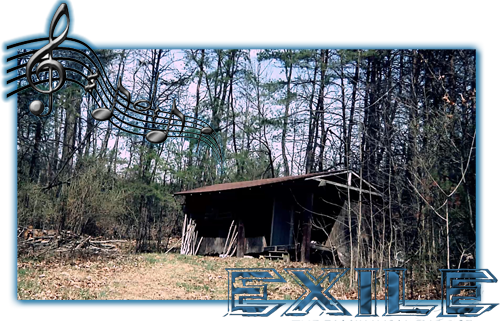
Music can be one of the most powerful tools in a producers’ arsenal. The right song at the right time can make the film for some people, yet many web producers still opt for free loops from Garage Band and other sources. Here I chat with Andrew Stirling MacDonald, one of the producers of the series ‘Exile,’ about his process working with bands and licensing the right music for his production.
This is the first part of a two part interview with the ‘Exile’ producer, the second – on the subject of writing for the web – will be released next week.
 Q: The Snobby Robot: One of the most striking aspects of ‘Exile’ was the depth and quality of the music, what was your strategy for getting it? Did you know bands, contact labels or what?
Q: The Snobby Robot: One of the most striking aspects of ‘Exile’ was the depth and quality of the music, what was your strategy for getting it? Did you know bands, contact labels or what?
 A: Andrew Stirling MacDonald: As far as music goes, we’re always looking for artists with new and unique sounds that work well with our series. Being a part of the Pennsylvania music scene, I had gotten to know Mark Redding from The Shackeltons fairly well. He’s always been enthusiastic about independent art and entertainment, and has been incredibly supportive of Exile, and we were thrilled when he gave us permission to use a song for the end credits of “Shelter from the Storm” (as well as providing an end credits song and some background bar music during the second arc).
A: Andrew Stirling MacDonald: As far as music goes, we’re always looking for artists with new and unique sounds that work well with our series. Being a part of the Pennsylvania music scene, I had gotten to know Mark Redding from The Shackeltons fairly well. He’s always been enthusiastic about independent art and entertainment, and has been incredibly supportive of Exile, and we were thrilled when he gave us permission to use a song for the end credits of “Shelter from the Storm” (as well as providing an end credits song and some background bar music during the second arc).
The end credits of Arc II Issue 3 are by The Flying Buttresses of Treebark County. Joe Plowman, who arranged my score for the second arc, is a member of that band. He introduced me to their music while I was down at Temple University recording the original score.
While we were in pre-production on “The Family You Choose,” an album dropped from another artist I’d been following for a while, hearing her songs on WXPN. Nicole Atkins’ “Mondo Amore” was a great, unique, heartfelt album – and no track more so than the seminal “The Tower.” Kalavoda (who was directing this project solo) used the track as inspiration while he conceived the look of those fateful final moments of arc II, issue 3. Kalavoda and I were so taken with her music that we drove out to a concert she played at the Stone Pony, a venue just outside of her native Neptune City, NJ. One of the bands who opened for Atkins was Minerva Lions, who’s “For R.A.” can be heard in the closing credits of arc II, issue 1.
Licensing Atkins’ “The Tower” was very complicated – I’d never negotiated with record companies before. However, I got a lot of support from staff at Razor & Tie and BMG/Chrysalis music, and we are absolutely thrilled that we are able to present the scene with the music we wanted from the very beginning of the project.

Q: The Snobby Robot: I’m interested in hearing more about your process negotiating with the record companies. I’m not too concerned with how much they asked for, but rather what they were looking at in terms of your production when they came up with what they thought was a fair price.

A: Andrew Stirling MacDonald: When Jesse Kalavoda and I first decided to pursue music from Nicole Atkins, we weren’t really sure how to go about it. I did a little research, but it was tough – no other web series was really licensing music through major studios yet, and so the basic ideas of online distribution didn’t really exist. The industry has been kind of toeing the line with services like iTunes and Hulu – treating them somewhat like DVD distribution – so there wasn’t really a foundation to build on for an entirely web-distributed independent project. I decided to just contact the record label, Razor & Tie. I always try to be as forthright as I can in every situation. I’ve found that this leads to overwhelmingly positive experiences, and this was no exception. I told Razor & Tie upfront that I’d never done this before, and asked for their help. I gave them a pretty detailed breakdown of our budget for the current arc and our distribution method and viewership for the first arc. Razor and Tie requested a show synopsis, the name of our production company, the type of use (background music, someone singing it, end credit music, etc), the duration the song would be used for, a scene description, and how we intended to distribute it (over what networks, and for how long). They also said that a rough cut of the scene itself, as it would appear if it had their music in it.

Q: The Snobby Robot: How long did the process take? Was it worth not just the money but the effort?

A: Andrew Stirling MacDonald: The representative was incredibly helpful and patient, and developed a 5-year contract for distribution that covered our content (in this case, Blip.tv and everyone they work with, including iTunes, YouTube, Roku, Tivo, etc). The contract also included guidelines for showing the series at film festivals and conventions, which is an important part of the web series community – for example, when we were at Gen Con last year, we had a wonderful time getting to know the cast and crew from Aidan 5, and I hear stories from people all the time about how they develop relationships with fans and other creators at cons.
The process did take quite a while – about 10 months, all told. We had to contact two record companies, one for the master rights and one for the publishing rights. They had 50% rights each to the song, which I’ve learned is pretty standard. We had to wait on approval from a few different people before everything went through, but when it did, we were pretty ecstatic. Having gone through music licensing once, I’m confident that it will not be as difficult next time. As long and complicated as the process was, it was definitely worth it. Having your original concept for the series come to life like that is spectactular. Cameron Crowe plays music for his actors before major scenes in his films – in fact, one of the earliest steps in his pre-production process is making himself a mixtape, and many of the creative people who I work with do the same thing. I’m sure that if we’d been unable to secure the rights we would’ve found something that worked, but using the songs we’ve had in our heads while we filmed the scenes adds a sort of value that you just can’t replace.

Q: The Snobby Robot: Do you think having working relationships with quality, small time bands is something important for web producers with small budgets. Could you imagine going about finding/creating music for your series any other way than you did?

A: Andrew Stirling MacDonald: Developing and maintaining relationships with small bands is very important for web producers – in fact, I’ll take it a step further and say for any independent artist, it’s incredibly important to have relationships with other independent artists in every catagory. We maintain close ties to creative people of all sorts, and we couldn’t produce our series otherwise. Independent music in particular is benefiting from the same developments as video production, including access to affordable prosumer electronics that sound great. In the case of Exile, I used a combination of signed bands, indie bands and original music to create the soundscape. I worked with a very talented arranger, Joe Plowman, who found an ensemble down at Temple University who performed the original score for a very reasonable fee. The more bridges you build in our creative community, the better your project will be.

Q: The Snobby Robot: What would be your advice to a web producer who is starting to think about the music side of their production today?
 A: Andrew Stirling MacDonald: Develop and maintain relationships in the music community. This means your online community, your fans and the bands that your fans are listening to and posting about on facebook.
A: Andrew Stirling MacDonald: Develop and maintain relationships in the music community. This means your online community, your fans and the bands that your fans are listening to and posting about on facebook.
In addition to the new cast and crew, Exile has been working with several record companies and has licensed music from artists including Nicole Atkins, The Shackeltons and Minerva Lions.



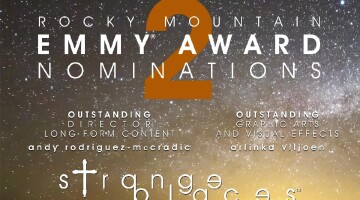

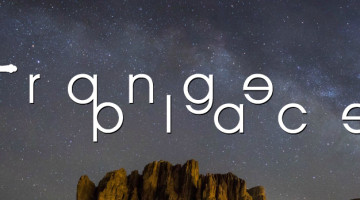

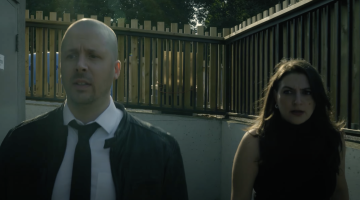
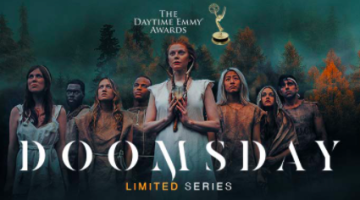

No Comment